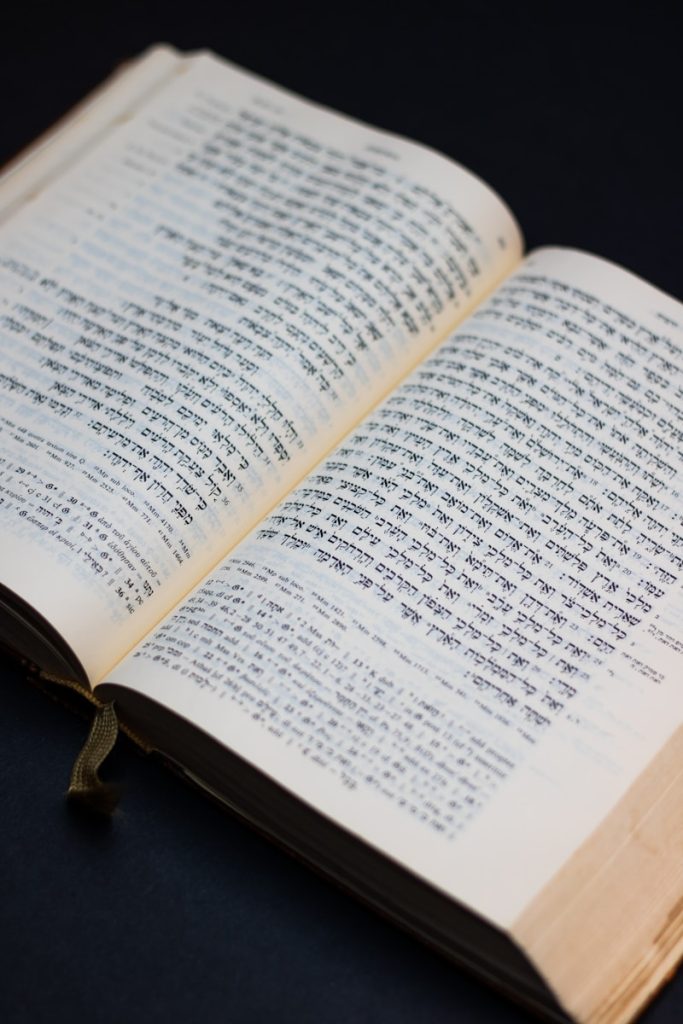Persecution and Cosmic Conflict: The Biblical-Theological Reading of Genesis in Galatians

Joshua Hutchens | Sep 9, 2025 | Scholars Spotlight
“But just as then the child born as a result of the flesh persecuted the one born as a result of the Spirit, so also now…” (Gal 4:29 CSB).
Why do God’s people suffer? In Galatians, Paul makes an argument from persecution for the authenticity of his gospel. Persecution demonstrates that Paul and the Galatians belong to God and have believed in the divinely revealed gospel. While Paul does not offer an explicit theodicy in Galatians, his argument from persecution requires an implicit one. Paul’s theodicy can primarily be understood through his interpretation of earlier Scripture, especially the story of Isaac and Ishmael in Genesis. In light of earlier Scripture and especially the book of Genesis, Paul sees persecution as a manifestation of the cosmic conflict between God in Christ and the present evil age.
An exegetical investigation into the various polarities in Galatians—human/divine, works of the law/faith in Christ, law/promise, slavery/freedom, and flesh/spirit—as well as Paul’s time descriptions in the book establishes that Paul sees himself and the Galatians as active participants in a broader conflict. This conflict is between God who has inaugurated the new creation within the present time and an impersonal, yet personified entity called “this present evil age” (Gal 1:4). In the letter, Paul identifies three primary ways that this cosmic conflict manifests itself in the crisis at Galatia: (1) within the believer and the community, (2) between Jew and Gentile, and (3) between persecutor and persecuted.
Paul’s understanding of cosmic conflict parallels thematically the views of other early Jewish texts. An investigation into the theme in Genesis, Psalms, Isaiah, and Habakkuk, all books cited by Paul in Galatians, identifies three loci of the theme: (1) the polarity of the righteous/wicked, (2) the problem of sin and suffering, and (3) the solution of God’s invasive action. While significant differences can be highlighted among these four biblical books, these differences represent the organic growth of Old Testament eschatology through the progress of revelation. Other early Jewish texts, not cited in Galatians, also reflect the same theme: Daniel, 1 Enoch, 4 Ezra, 2 Baruch, Jubilees, 1 Maccabees, 2 Maccabees, 4 Maccabees, The Community Rule, The Damascus Document, and The War Scroll. These texts, like Galatians, demonstrate a dependence upon earlier Israelite Scripture, sharing both a theme of cosmic conflict and the three loci that give shape to that theme. But beyond this general unity around a theme, these early Jewish texts exhibited immense diversity, especially concerning the nature of God’s future invasive actions. In this theological context, Paul transformed the theme of cosmic conflict from earlier Scripture in three primary ways: (1) He read Scripture in light of the coming of the Son and the Spirit. (2) Because of the work of the Son and the Spirit, he believed that the new creation had already been inaugurated, although not yet fully realized, in the church. (3) Paul believed that the Gentiles were to be included in the people of God through faith in the gospel of Christ apart from the law.
In terms of the actual experience of the Galatians, interpreters disagree concerning the historical nature of Paul’s references to persecution, specifically the persecution of the Galatian Christians. The letter refers to four instances of persecution or likely persecution: (1) Paul, in his former life in Judaism, persecuted the church of God (Gal 1:13, 23). (2) But now as a preacher of Christ, Paul endures persecution (Gal 5:11; 6:17). (3) By preaching circumcision, Paul’s opponents avoid possible persecution from local synagogues (Gal 6:12). (4) The Galatian Christians had suffered persecution from local synagogues in the past (Gal 3:4) and are now being persecuted by Paul’s opponents (Gal 4:29). However, since Paul does not mention physical persecution and rather presents his opponents as attempting to persuade the Galatians, it seems that the present persecution is the preaching of a false gospel that will sever them from Christ. In Galatians, Paul uses the theme of persecution to polemically reshape the perception of his readers. His opponents pose as friends, but they have no love for the Galatian believers (e.g., Gal 4:16–19). Their preaching is persecution because it threatens to separate the Galatian believers from Christ and thus from their inheritance as sons (Gal 5:4). Therefore, the Galatian believers must reject the false gospel of Paul’s opponents and stand firm in their freedom (Gal 5:1).What then of the theological significance of Paul’s use of διώκω in Galatians 4:29? Galatians 4:29 directly connects the phenomenon of persecution with the broader cosmic conflict. Paul does so by identifying Genesis 21:9 as an earlier type of the persecution experienced in Galatia. Most commentators posit that Paul uses rabbinic interpretations or methods when alluding to Genesis 21:9 since the text only explicitly mentions Ishmael laughing. The typology that Paul identifies in Genesis 21:9, however, fits within a unified reading of Genesis. Genesis itself sees fraternal strife as a manifestation of cosmic conflict, and, therefore, Paul rightly understands Ishmael’s laughter as threatening to the true heir of Abraham, Isaac, following the pattern of other fraternal relationships in Genesis. The Galatian believers, therefore, are not in a conflict similar to Isaac. They are in the same conflict as Isaac—the cosmic conflict. In order to receive their inheritance and stand in their freedom, they also must obey Sarah’s protective command and cast out the false teachers (Gal 4:30; Gen 21:10).1
Footnotes
- This abstract summarizes the argument of Dr. Hutchens’ published dissertation, Joshua Caleb Hutchens, Persecution and Cosmic Conflict: The Biblical-Theological Reading of Genesis in Galatians (Eugene, OR: Wipf & Stock, 2024). See https://wipfandstock.com/9798385203475/persecution-and-cosmic-conflict/ ↩︎








